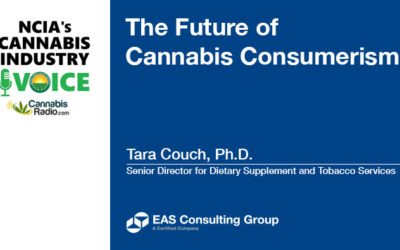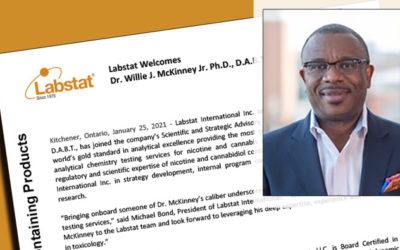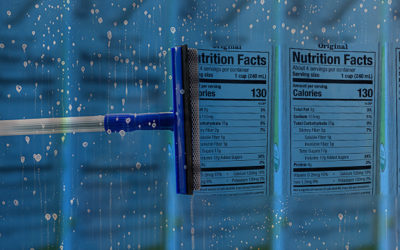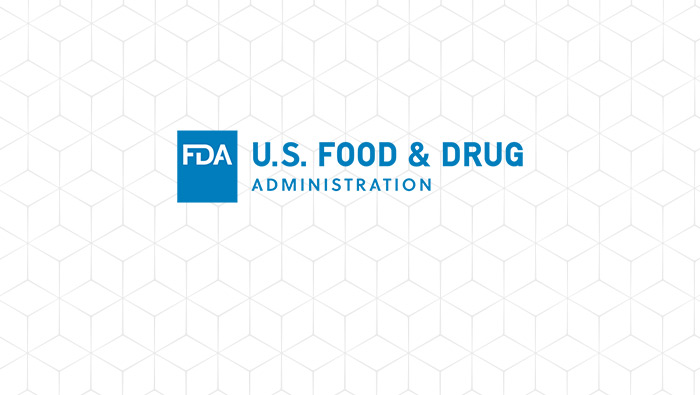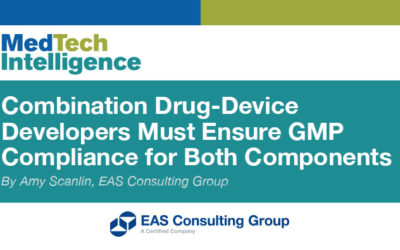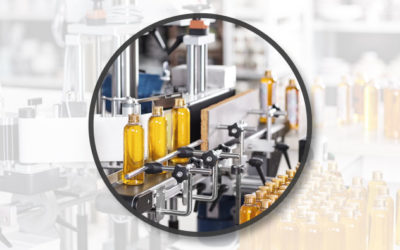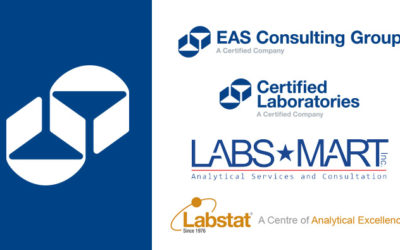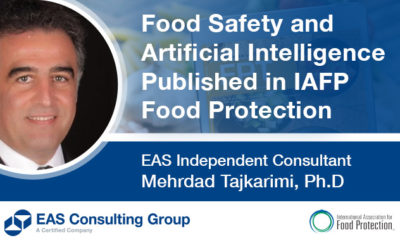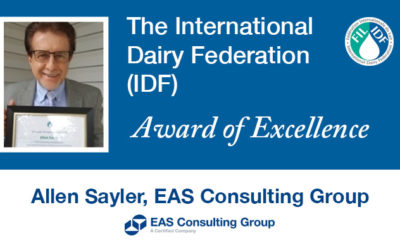EAS Blog
EAS Independent Consultants and staff provide in-depth regulatory expertise and authoritative reporting on a variety of compliance requirements for industries that EAS serves. Our experts break down complicated topics into easily understandable summaries and analysis. Subscribe to our newsletter and receive these monthly updates directly in your in-box.
Safe Foods for Canadians – What you Need to Know
The Canadian Food Inspection Agency (CFIA) is responsible for the safety of food products sold in Canada by enforcing the recently implemented Safe Foods for Canadians Regulation (SFCR). It is a compilation of 14 sets of regulations governing safety of human …
Drug and Device Corner February 2021
CDER's Work to Meet User Fee Goals During the Pandemic website includes an overview of the agency’s thinking regarding manufacturing facility inspections during the age of COVID-19. As always, the FDA will use a risk-based approach to identify facilities that require pre-approval inspection for...
EAS Senior Director Tara Lin Couch, Ph.D. Featured in NCIA Podcast on the Future of Cannabis Consumerism
EAS Senior Director for Dietary Supplement and Tobacco Services, Tara Lin Couch, Ph.D. was interviewed for the National Cannabis Business Industry’s podcast on the future of cannabis consumerism. Listen now on Apple podcast and Stitcher and hear more about the importance of Good Manufacturing...
Did You Know? FDA Compliance Includes 21 CFR Part 11 for Electronic Records and Signatures
In addition to Good Manufacturing Practices, supply chain oversight, labeling, registrations, listings, adverse event tracking and all the other regulatory requirements required by FDA, use of electronic records and submissions adds an additional compliance requirement - 21 CFR 11 except for...
USDA Regulatory Requirements for Food Safety
Instructor EAS Independent Consultant Armia Tawadrous, DVM A 12-hour seminar in three-parts, taking place June 14, 16, 18, 2021 From 11am-3pm eastern each day The sensitivity of meat and poultry products to microorganism contamination by bacteria, viruses and parasites renders them an...
USDA Labeling Compliance Virtual Seminar
Instructor EAS Independent Consultant Susan GlennApril 5-6, 2022 12pm-3pm eastern each dayIf you develop USDA-regulated products you need to understand USDA labeling requirements. USDA labeling has its own set of allowable product names, claims and nutrition labeling requirements. EAS Consulting...
Did You Know? Biopesticide Registration is Required by the EPA
Derived from natural materials, biopesticides, are inherently less toxic than conventional pesticides and when used as a component of Integrated Pest Management (IPM) programs, can greatly reduce conventional pesticide use and improve crop yields. EPA has regulatory authority over biopesticides as...
Noted Tobacco Expert Joins Labstat’s Scientific and Strategic Advisory Board
EAS sister organization under the Certified Group of companies, Labstat International Inc., has announced that Willie J. McKinney, Ph.D., D.A.B.T., has joined their Scientific and Strategic Advisory Board (SSAB). Dr. McKinney’s regulatory and scientific expertise of nicotine and cannabidiol...
Cosmetic Regulations, Labeling and Safety Virtual Seminar
How to Ensure Your Products Comply with the US RequirementsInstructors EAS Independent Advisor for Colors and Cosmetics, John Bailey, Ph.D. & EAS Independent Consultant, Catherine BaileyOctober 27, 2022 - 11:00am-3:00pm easternCosmetic products are expected to only exert superficial, not...
Drug and Device Corner January 2021
EAS Client UpdatesBreaking News: FDA Places All Alcohol-Based Hand Sanitizers from Mexico on Import Alert As part of the U.S. Food and Drug Administration’s continuing efforts to protect consumers from potentially dangerous or subpotent hand sanitizers, the agency has placed all alcohol-based hand...
Preventive Controls for Human Foods Virtual Training with Preventive Controls Qualified Individuals (PCQI) Certification
Using the Official Food Safety Preventive Controls Alliance (FSPCA) Training Curriculum Recognized by the US Food & Drug Administration (FDA)Presented by EAS Independent Consultant, Elise ForwardDecember 2, 7, 9, 14 and 16, 2021 - from 11am-3pm eastern each dayThe Current Good Manufacturing...
Streamline Food Exports to the US
Six Steps to Compliance SuccessEnsuring compliance with FDA’s Food Safety Modernization Act (FSMA) can be confusing, particularly for foreign-based companies trying to comply with the additional traceability requirements of FSMA’s Foreign Supplier Verification Program (FSVP). Did you know that EAS...
Regulatory Provisions that Can Help Provide Clear, “Clean” and Concise Label Declarations
By Gisela Leon, EAS Independent Consultant and Instructor for Food and Dietary Supplement Labeling Seminar In times of COVID-19, many people are restricted to staying at home, working from home, and cooking at home more than ever before. Cooking at home requires the consumer to make informed...
FDA Withdrawal Announcement
The FDA published today in the Federal Register Vol. 86, No. 3 a withdrawal of their December 29, 2020 Federal Register Notice entitled Fee Rates Under the Over-the-Counter Monograph User Fee Program for Fiscal Year 2021./p> With the FDA’s most recent announcement, the agency is informing the...
Is your CMO Aware of Their FDA Obligation for OTC-Drug User Fees?
Last week FDA announced the fiscal year 2021 OTC-Drug User Fee rates in a Federal Register Notice. Under the new 2021 rates: Owners of manufacturing and processing facilities of finished OTC-drug dosage forms will pay a full facility fee: $14,060. Owners of a contract manufacturing facility will...
Did You Know? EAS Assists with Due Diligence Assessments in Support of Mergers and Acquisitions
In the competitive FDA space, mergers and acquisitions of brands and formulations are a common occurrence and help gain a competitive edge. These critical decisions have far reaching implications, including exposure to regulatory risks which can have devastating financial consequences. As part of...
GMPs for Combination Drug-Device Products – Understanding Compliance Requirements for Each Component
EAS published an article in MedTech Intelligence on the importance of component GMP requirements for drug-device combination products.“The rapid development of combination products—biologics, pharmaceuticals and their devices—provides great opportunity for technological advancement, opening new...
Wishing You a Healthy and Happy 2021
From our family to yours, EAS Consulting Group wishes everyone a healthy and happy New Year! 2020 will certainly be remembered as one of immense challenges and creative opportunities. From the push to develop effective testing and vaccines, to supply chain issues that upended manufacturing and...
Recall Plans and Strategies
Robert Fish, Independent Advisor, Quality and Compliance Every year FDA monitors thousands of recalls of regulated products (over 7,000/year). Though most product recalls are voluntary, the FDA can also order them. Recalls can be very damaging to the reputation of a company and its brands....
FDA OTC-Drug User Fee Rates Established for FY 2021
FDA announced the fiscal year 2021 OTC-Drug User Fee rates in a Federal Register Notice published today, 12/29/2020. The notice covers all qualifying manufacturers and processors of finished dosage form OTC monograph drugs, including contract manufacturing facilities and submitters of OTC...
Did you Know? 3 Key Considerations for Developers of Wearable Software as Medical Devices
Digital platforms for wearables can serve both medical and non-medical purposes. But, when software technology helps the wearer or medical professionals identify and track information in support the diagnosis or treatment of a disease, that software is considered a medical device and is subject to...
New USDA FSIS Requirements for Shell Eggs – Top 5 Things You Need to Know Now!
USDA Food Safety Inspection Services (FSIS) recently issued the first regulatory update of the Egg Products Inspection Act (EPIA) since 1970, called the Egg Products Inspection Regulations (EPIR) which modernizes the industry requirements and FSIS inspection of shell eggs. This landmark update...
The Cosmetic-Drug Conundrum
The subtle differences between allowable cosmetics claims and those crossing the line into drug products is tricky. The wrong claims can cause a cosmetic product to be misbranded attracting unwanted FDA attention. Once some of your marketing claims are under review, you can expect a closer...
Micro Quality Labs Joins the Certified Group Family
We are proud and excited to announce that Micro Quality Labs (MQL) has joined the Certified Laboratory family of companies. MQL is an ISO accredited, independent analytical testing laboratory, providing state-of-the-art instrumental chemical and microbiological analyses to the cosmetic, skincare,...
US FDA Proposed Traceability Rule – Overview
FDA’s proposed rule “Requirements for Additional Traceability Records for Certain Foods” mandates traceability recordkeeping requirements for certain foods such as cheeses, shell eggs, some types of fish and produce. When finalized, the Traceability Regulation will be …
Drug and Device Corner November 2020
Revisions to section 801(e)(4)(E)(iii) of the FD&C Act as part of the Coronavirus Aid, Relief, and Economic Security (CARES) Act direct FDA to provide certification for Devices Not Exported from the U.S. Manufacturers of devices not exported from the United States, as described in section...
EAS Celebrates One-Year as a Member of the Certified Group of Companies
November marked the one-year anniversary for EAS Consulting Group’s acquisition by Certified Laboratories as part of the Certified Group of companies – and what a great year it has been! While both companies knew the synergistic capabilities of EAS regulatory solutions coupled with expert...
Genome-Edited Crops and the National Bioengineered Food Disclosure Standard: Can Regulators Find the Right Balance?
Anyone who follows science news has probably heard of the phenomenal scientific advancements using CRISPR. CRISPR (Clustered Regularly Interspaced Short Palindromic Repeats) exist in nature as a defense mechanism in bacteria against invading viruses. In 2012, researchers Jennifer Doudna and
Food Safety and Artificial Intelligence Published in IAFP Food Protection Trends
Members of IAFP are invited to read an article on Food Safety and Artificial Intelligence written by Independent Consultant, Mehrdad Tajkarimi, Ph.D., and published in IAFP’s Food Protection Trends. Today, the food industry has more data than capacity for analyzing and processing into meaningful...
Allen Sayler Awarded International Dairy Federation Award of Excellence
Senior Director Allen Sayler has received the Award of Excellence by the Brussels-based IDF for outstanding contributions to their programs. Allen is an internationally recognized expert in dairy and dairy process, having previously worked as the Vice President of Regulatory Affairs and...


